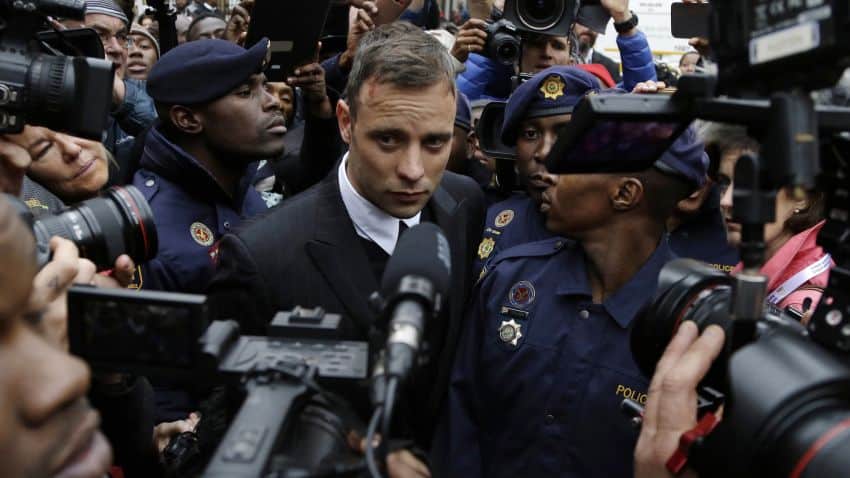Oscar Pistorius, a renowned athlete with numerous accomplishments, has recently been released from a South Africa prison after serving a 9-year sentence for the murder of Reeva Steenkamp. This article will explore the details of Pistorius’ athletic achievements, provide an overview of the murder case, and discuss the significance of his release and the subsequent public response.
Background on the Murder Trial
In order to understand the events leading to Reeva Steenkamp’s tragic death, it is crucial to examine both Oscar Pistorius’ claim of a mistaken intruder and the prosecution’s argument. Pistorius maintained that he believed an intruder had entered his home and that he fired shots as a result. However, the prosecution argued that Pistorius intentionally shot and killed Steenkamp after a heated argument.
Throughout the trial, key witnesses and evidence were presented, shedding light on the events of that fateful night. Testimonies from neighbors, forensic experts, and friends of the couple were meticulously analyzed. The media coverage surrounding the trial further fueled public interest, with millions of people around the world following every development.
The Impact of Pistorius’ Imprisonment
Oscar Pistorius’ sentencing had profound consequences, affecting various aspects of his life. The psychological effects of his imprisonment cannot be understated, as he was forced to adjust to a vastly different reality from his life as a celebrated athlete. The loss of his freedom, daily routines, and interactions with loved ones undoubtedly took a toll on Pistorius’ wellbeing.
Legal experts weighed in on the impact of Pistorius’ sentencing, offering differing perspectives on the fairness and appropriateness of the punishment. Some argued that the severity of the sentence set an important precedent for cases involving violence and celebrity status, while others believed the sentence to be excessive compared to similar cases.
The case also sparked a broader societal discussion, as public opinion on Pistorius’ guilt or innocence was sharply divided. Many debated the issue of domestic violence, gun control, and the role of privilege within the justice system. The trial brought to light the complexities of South Africa’s legal system, leading to calls for reform and a deeper examination of how justice is served.
Oscar Pistorius’ Release and Public Response
After serving 9 years in prison, Oscar Pistorius has been released, subject to certain conditions and monitoring. The process of parole and early release is under scrutiny, with questions about the fairness and transparency in determining the appropriate length of incarceration. Pistorius’ release has reinvigorated public interest and ignited a fresh wave of debate and discussion.
The conditions of Pistorius’ release are closely monitored, ensuring compliance with the terms set by the parole board. As a free man, Pistorius must adhere to specific guidelines and continue to demonstrate good behavior. The news of his release has garnered mixed reactions from the public, with some expressing outrage and others offering support or sympathy.
Conclusion
In conclusion, the release of Oscar Pistorius from prison after 9 years for the murder of Reeva Steenkamp marks a significant moment in both his personal journey and the collective consciousness of society. This article explored the background of the murder trial, the impact of Pistorius’ imprisonment, and the details surrounding his release. The case serves as a reminder of the complexities and lasting impact of high-profile trials, prompting us to reflect, learn, and strive for a fairer and more effective justice system.
Also, Read: ‘Speed Racer’ Actor, Passed Away in Plane Crash





